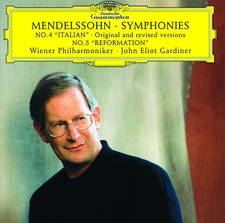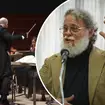George Bridgetower (1779 - 1860) and Beethoven: a troubled relationship
George Bridgetower, the celebrated English violin virtuoso, came to Vienna in 1803 and met Beethoven. They played together and Beethoven was impressed.
At Bridgetower's urging, Beethoven agreed to compose a new Violin Sonata, to be performed by the two of them at one of the celebrated morning concerts in the Augarten pavilion, run by Ignaz Schuppanzigh.
Bridgetower was tall and good-looking, with an eye for the ladies. He was a mulatto - his mother Polish, his father West Indian.
Recognised as being of exceptional talent, he had performed for King George III at Windsor Castle, the Prince Regent at the newly built Brighton Pavilion, the Pump Rooms at Bath and across southern England.
For the new sonata, Beethoven took the final movement from an earlier sonata (which he replaced) and composed a new first and second movement. The first movement was huge, opening with solo double-stopping across all four strings for the violinist. He delivered the new movements to Bridgetower only the day before the performance!
A glittering audience assembled for the premiere of the new piece - including the British ambassador, Archduke Rudolph, Prince Lichnowsky, Prince Lobkowitz, and other patrons of the arts.
The performance began. In bar 35 of the first movement Beethoven had written a huge run just for piano, spanning several octaves. It comes in a passage marked 'to be repeated'. In the repeat, after Beethoven executed the run, Bridgetower imitated it on the violin.
Beethoven looked up from the piano in astonishment, ran across the stage, embraced Bridgetower, ran back to the piano and continued playing.
The performance was a triumph. At celebrations afterwards, Beethoven announced he was dedicating the new Violin Sonata to Bridgetower. He wrote on the top of the title page of the manuscript: Sonata per uno mulaticco lunattico.
Later, the two men were drinking, when Bridgetower made an off-colour remark about a lady Beethoven knew. Beethoven was outraged. He demanded that Bridgetower return the manuscript of the sonata, and informed him he was withdrawing the dedication. He would dedicate it instead, he told Bridgetower, to Europe's greatest violin virtuoso, who was resident in Paris.
Bridgetower pleaded with Beethoven to change his mind, but Beethoven was adamant. The rift between the two men was not healed, before Bridgetower left Vienna a week later to visit relatives of his mother in Poland.
Beethoven and Bridgetower never met again. Long after Beethoven's death, Bridgetower - an old man - was living in poverty in a home for the destitute in Peckham, south London. A Beethoven researcher went to see him and asked him if it was true he had once met Beethoven.
Bridgetower related the story of the first performance of the Violin Sonata, how he had copied the piano run, and how Beethoven had dedicated the sonata to him. And how one stupid remark about a lady had made Beethoven withdraw the dedication.
It should be the Bridgetower Sonata, he told the young researcher, his name that should be known across Europe, his name that would live for ever.
Instead he was unknown to history, and destined to remain that way. Bridgetower died in poverty, the woman who witnessed his death signing her name on his death certificate with a cross. He is buried today in Kensal Green cemetery, just off the A40 flyover west of London - his name forgotten.
And the violin virtuoso in Paris to whom Beethoven sent the sonata? Rudolphe Kreutzer, whose name adorns the greatest Violin Sonata Beethoven ever composed: the Kreutzer Sonata.
So next time you hear a performance of the Kreutzer Sonata, spare a thought for the man who gave it its first performance and after whom it should really be named. George Bridgetower.
One final point. When Kreutzer received the manuscript in Paris, he looked at it and declared it impossible to play. Beethoven does not understand the violin, he said, and he never once performed it in public - the sonata that today bears his name.


























